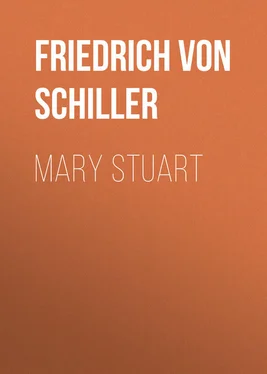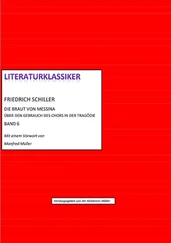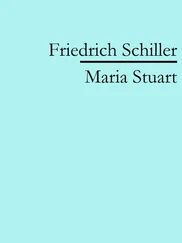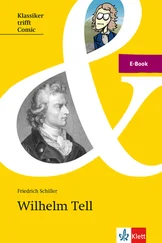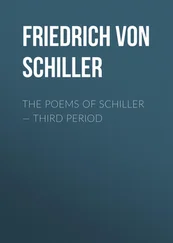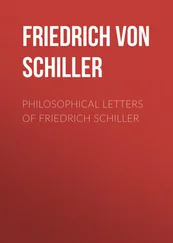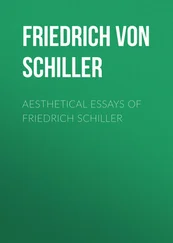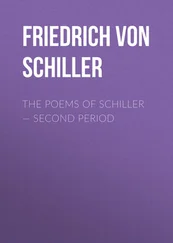Friedrich Schiller - Mary Stuart
Здесь есть возможность читать онлайн «Friedrich Schiller - Mary Stuart» — ознакомительный отрывок электронной книги совершенно бесплатно, а после прочтения отрывка купить полную версию. В некоторых случаях можно слушать аудио, скачать через торрент в формате fb2 и присутствует краткое содержание. Жанр: literature_18, Драматургия, foreign_antique, foreign_prose, foreign_dramaturgy, на английском языке. Описание произведения, (предисловие) а так же отзывы посетителей доступны на портале библиотеки ЛибКат.
- Название:Mary Stuart
- Автор:
- Жанр:
- Год:неизвестен
- ISBN:нет данных
- Рейтинг книги:5 / 5. Голосов: 1
-
Избранное:Добавить в избранное
- Отзывы:
-
Ваша оценка:
- 100
- 1
- 2
- 3
- 4
- 5
Mary Stuart: краткое содержание, описание и аннотация
Предлагаем к чтению аннотацию, описание, краткое содержание или предисловие (зависит от того, что написал сам автор книги «Mary Stuart»). Если вы не нашли необходимую информацию о книге — напишите в комментариях, мы постараемся отыскать её.
Mary Stuart — читать онлайн ознакомительный отрывок
Ниже представлен текст книги, разбитый по страницам. Система сохранения места последней прочитанной страницы, позволяет с удобством читать онлайн бесплатно книгу «Mary Stuart», без необходимости каждый раз заново искать на чём Вы остановились. Поставьте закладку, и сможете в любой момент перейти на страницу, на которой закончили чтение.
Интервал:
Закладка:
Close your accounts with heaven.
From heaven I hope
For mercy, sir; and from my earthly judges
I hope, and still expect, the strictest justice.
Justice, depend upon it, will be done you.
Is the suit ended, sir?
I cannot tell.
Am I condemned?
I cannot answer, lady.
[Sir, a good work fears not the light of day.
The day will shine upon it, doubt it not.]
Despatch is here the fashion. Is it meant
The murderer shall surprise me, like the judges?
Still entertain that thought and he will find you
Better prepared to meet your fate than they did.
Sir, nothing can surprise me which a court
Inspired by Burleigh's hate and Hatton's zeal,
Howe'er unjust, may venture to pronounce:
But I have yet to learn how far the queen
Will dare in execution of the sentence.
The sovereigns of England have no fear
But for their conscience and their parliament.
What justice hath decreed her fearless hand
Will execute before the assembled world.
SCENE III
The same. MORTIMER enters, and without paying attention to the QUEEN, addresses PAULET.
Uncle, you're sought for.
[He retires in the same manner. The QUEEN remarks it, and turns towards PAULET, who is about to follow him.
Sir, one favor more
If you have aught to say to me – from you
I can bear much – I reverence your gray hairs;
But cannot bear that young man's insolence;
Spare me in future his unmannered rudeness.
I prize him most for that which makes you hate him
He is not, truly, one of those poor fools
Who melt before a woman's treacherous tears.
He has seen much – has been to Rheims and Paris,
And brings us back his true old English heart.
Lady, your cunning arts are lost on him.
[Exit.
SCENE IV
MARY, KENNEDY.
And dare the ruffian venture to your face
Such language! Oh, 'tis hard – 'tis past endurance.
In the fair moments of our former splendor
We lent to flatterers a too willing ear; —
It is but just, good Hannah, we should now
Be forced to hear the bitter voice of censure.
So downcast, so depressed, my dearest lady!
You, who before so gay, so full of hope,
Were used to comfort me in my distress;
More gracious were the task to check your mirth
Than chide your heavy sadness.
Well I know him —
It is the bleeding Darnley's royal shade,
Rising in anger from his darksome grave
And never will he make his peace with me
Until the measures of my woes be full.
What thoughts are these —
Thou may'st forget it, Hannah;
But I've a faithful memory – 'tis this day
Another wretched anniversary
Of that regretted, that unhappy deed —
Which I must celebrate with fast and penance.
Dismiss at length in peace this evil spirit.
The penitence of many a heavy year,
Of many a suffering, has atoned the deed;
The church, which holds the key of absolution,
Pardons the crime, and heaven itself's appeased.
This long-atoned crime arises fresh
And bleeding from its lightly-covered grave;
My husband's restless spirit seeks revenge;
No sacred bell can exorcise, no host
In priestly hands dismiss it to his tomb.
You did not murder him; 'twas done by others.
But it was known to me; I suffered it,
And lured him with my smiles to death's embrace.
Your youth extenuates your guilt. You were
Of tender years.
So tender, yet I drew
This heavy guilt upon my youthful head.
You were provoked by direst injuries,
And by the rude presumption of the man,
Whom out of darkness, like the hand of heaven,
Your love drew forth, and raised above all others.
Whom through your bridal chamber you conducted
Up to your throne, and with your lovely self,
And your hereditary crown, distinguished
[Your work was his existence, and your grace
Bedewed him like the gentle rains of heaven.]
Could he forget that his so splendid lot
Was the creation of your generous love?
Yet did he, worthless as he was, forget it.
With base suspicions, and with brutal manners,
He wearied your affections, and became
An object to you of deserved disgust:
The illusion, which till now had overcast
Your judgment, vanished; angrily you fled
His foul embrace, and gave him up to scorn.
And did he seek again to win your love?
Your favor? Did he e'er implore your pardon?
Or fall in deep repentance at your feet?
No; the base wretch defied you; he, who was
Your bounty's creature, wished to play your king,
[And strove, through fear, to force your inclination.]
Before your eyes he had your favorite singer,
Poor Rizzio, murdered; you did but avenge
With blood the bloody deed —
And bloodily,
I fear, too soon 'twill be avenged on me:
You seek to comfort me, and you condemn me.
You were, when you consented to this deed,
No more yourself; belonged not to yourself;
The madness of a frantic love possessed you,
And bound you to a terrible seducer,
The wretched Bothwell. That despotic man
Ruled you with shameful, overbearing will,
And with his philters and his hellish arts
Inflamed your passions.
All the arts he used
Were man's superior strength and woman's weakness.
No, no, I say. The most pernicious spirits
Of hell he must have summoned to his aid,
To cast this mist before your waking senses.
Your ear no more was open to the voice
Of friendly warning, and your eyes were shut
To decency; soft female bashfulness
Deserted you; those cheeks, which were before
The seat of virtuous, blushing modesty,
Glowed with the flames of unrestrained desire.
You cast away the veil of secrecy,
And the flagitious daring of the man
O'ercame your natural coyness: you exposed
Your shame, unblushingly, to public gaze:
You let the murderer, whom the people followed
With curses, through the streets of Edinburgh,
Before you bear the royal sword of Scotland
In triumph. You begirt your parliament
With armed bands; and by this shameless farce,
There, in the very temple of great justice,
You forced the judges of the land to clear
The murderer of his guilt. You went still further —
O God!
Интервал:
Закладка:
Похожие книги на «Mary Stuart»
Представляем Вашему вниманию похожие книги на «Mary Stuart» списком для выбора. Мы отобрали схожую по названию и смыслу литературу в надежде предоставить читателям больше вариантов отыскать новые, интересные, ещё непрочитанные произведения.
Обсуждение, отзывы о книге «Mary Stuart» и просто собственные мнения читателей. Оставьте ваши комментарии, напишите, что Вы думаете о произведении, его смысле или главных героях. Укажите что конкретно понравилось, а что нет, и почему Вы так считаете.
